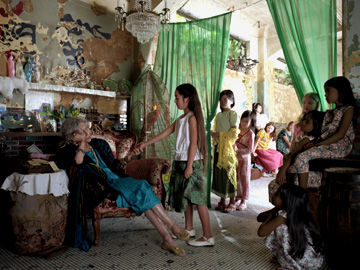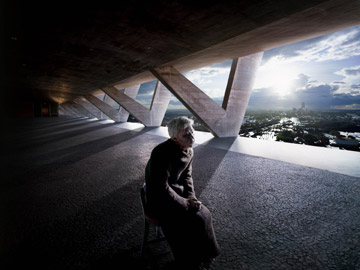 My grandmother is on the far right. I think I look more like her than anyone else in the family... and here are my great-grandparents who were the first generation in our family.
My grandmother is on the far right. I think I look more like her than anyone else in the family... and here are my great-grandparents who were the first generation in our family.
Being a 4th generation Korean-American from Hawaii, my relatives are generally English-speaking. My family endured a lot as one of the first families to immigrate to Hawaii from Korea. I'm sure it would make for a great K-drama plot.
I am still unaware of the specific details of what life was like for my great grandparents more than 100 years ago. When I see my great aunts, I'm amazed at how lively they are, with such joy in seeing their children and grandchildren grow up. All of them outlived their spouses. They're so active and strong, at ages nearing the mid 90s.
This reminds me of my recent research into Japanese contemporary art that explores the gender role of females in their society. From being referred to as "child-making devices" by a government official, and the twisted obsession with young adolescent girls, Japanese women have to endure and grieve over the loss of their identity in a society that takes them for granted... for as long as an average of 84 years of their lives. Japanese women live longer than either gender in any other country. Japan is full of old grandmothers, yet the obsession for underdeveloped youth girls is still a cultural norm. Photographer Miwa Yanagi does a series called "My Grandmothers" where she uses digitally altered photography and special-effects make-up to depict young women 50 years from now.
http://www.yanagimiwa.net/My/e/index.html
Check out the site, it has the stories and other details of the project.
Check out the site, it has the stories and other details of the project.
I regret not asking my grandmother what it was like to be a Korean-American woman in Hawaii, and how it encouraged or discouraged her to thrive as an individual. Defining my unique identity through my own life experiences is difficult as it is, and learning my own family history seems so necessary in completing the idea. At times, as I visited Hawaii, I did not feel like I fit in. I've lived in Atlanta, Georgia for more than 17 years now, yet I would not consider this my hometown. The last time I went to Korea was when I lived there as a child, and even then, I attended an American school at the U.S. Military base. South Korea is not my home either.
In the age of globalization, various cultures are represented in major metropolitan cities, where anyone can have a taste of another country's unique lifestyles. Unfortunately, what happens is that locals take on the false projection of a particular culture, which in reality is so much more rich at core. And with its misinterpretations and over-generalizations, the pursuit of authenticity is becoming more and more vain in America. Americanized Japanese food, Americanized Chinese Food, and so on... I wonder if cultural authenticity is even an issue with the majority of people in the U.S. anymore... What globalization should encourage is more opportunities for travel in the public education system to prepare the next generation in global affairs. Exposure to people who are different than your typical neighbor will surely extinguish any roots of ignorance or narrow-mindedness.
When thinking about what my art is about, I must take all these things into consideration.
sigh......... whew, it's one tough research assignment. "What the hell is my art about?" I know that I should know what I don't know, but in not knowing what I know nor what I don't know, I'm just doing art for the sake of doing art, and what's wrong with that!? BUT!! I think I may know a bit about what I absolutely don't know, therefore my art can not be about that, right!? It rules out SOMETHING, so yes, I am on the right track. Thanks, Paul.
sigh......... whew, it's one tough research assignment. "What the hell is my art about?" I know that I should know what I don't know, but in not knowing what I know nor what I don't know, I'm just doing art for the sake of doing art, and what's wrong with that!? BUT!! I think I may know a bit about what I absolutely don't know, therefore my art can not be about that, right!? It rules out SOMETHING, so yes, I am on the right track. Thanks, Paul.
I am a Korean - Hawaiian - American Southerner, female, and fairly young...
I am who I am.
I am who I am.


No comments:
Post a Comment